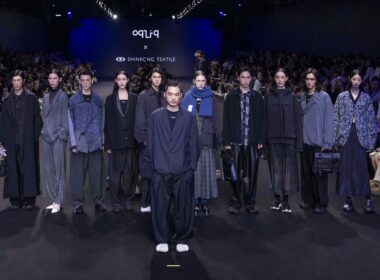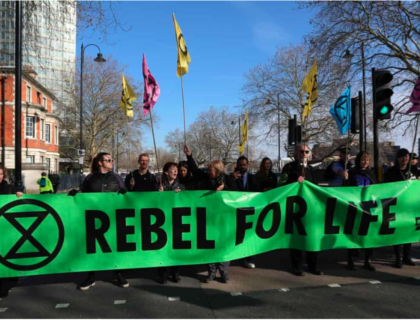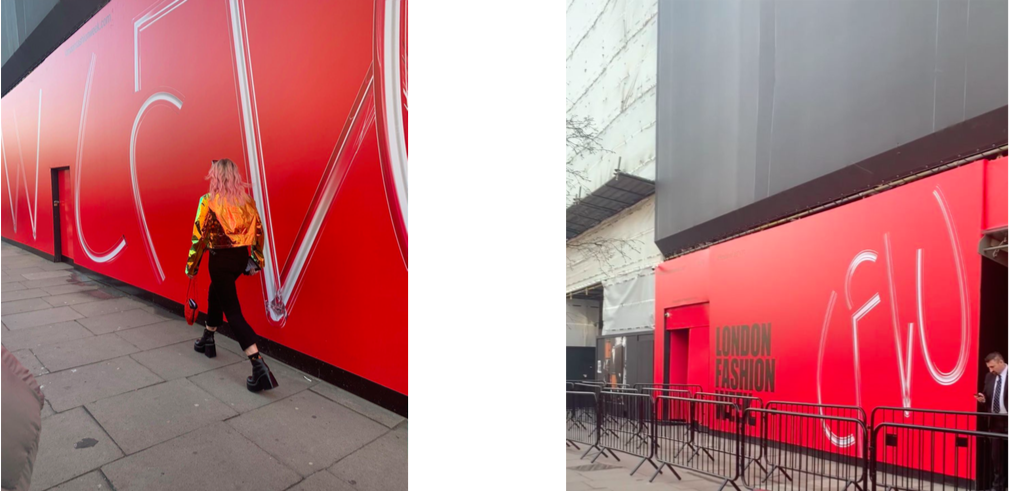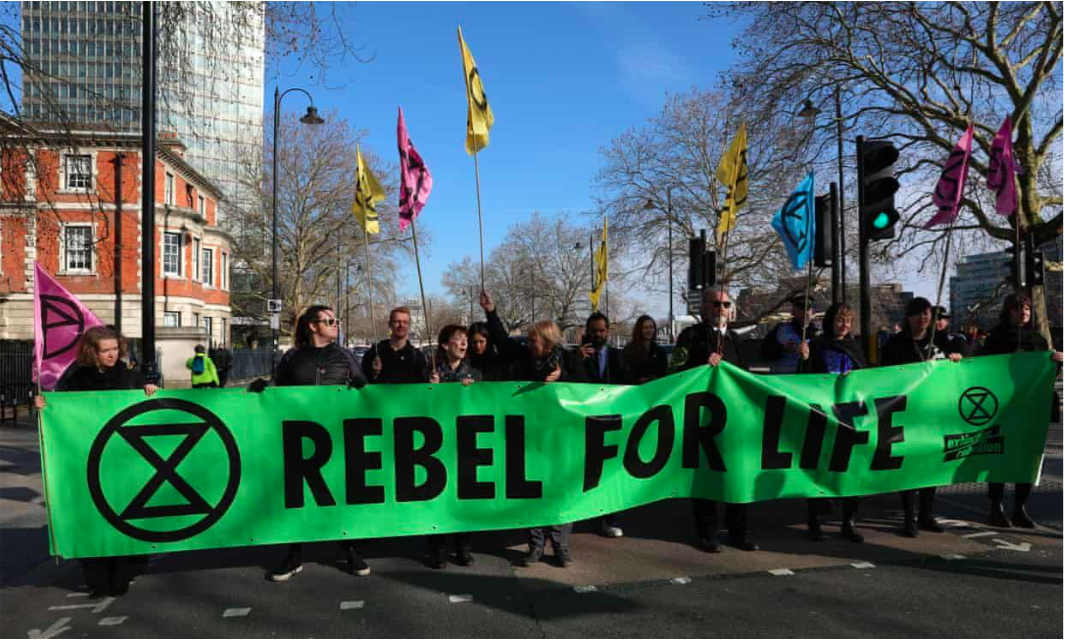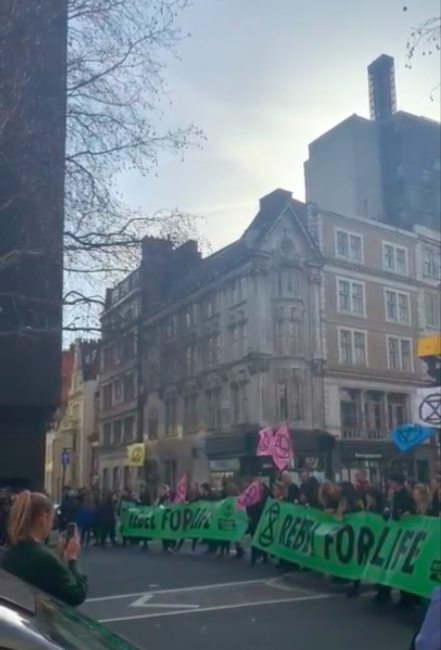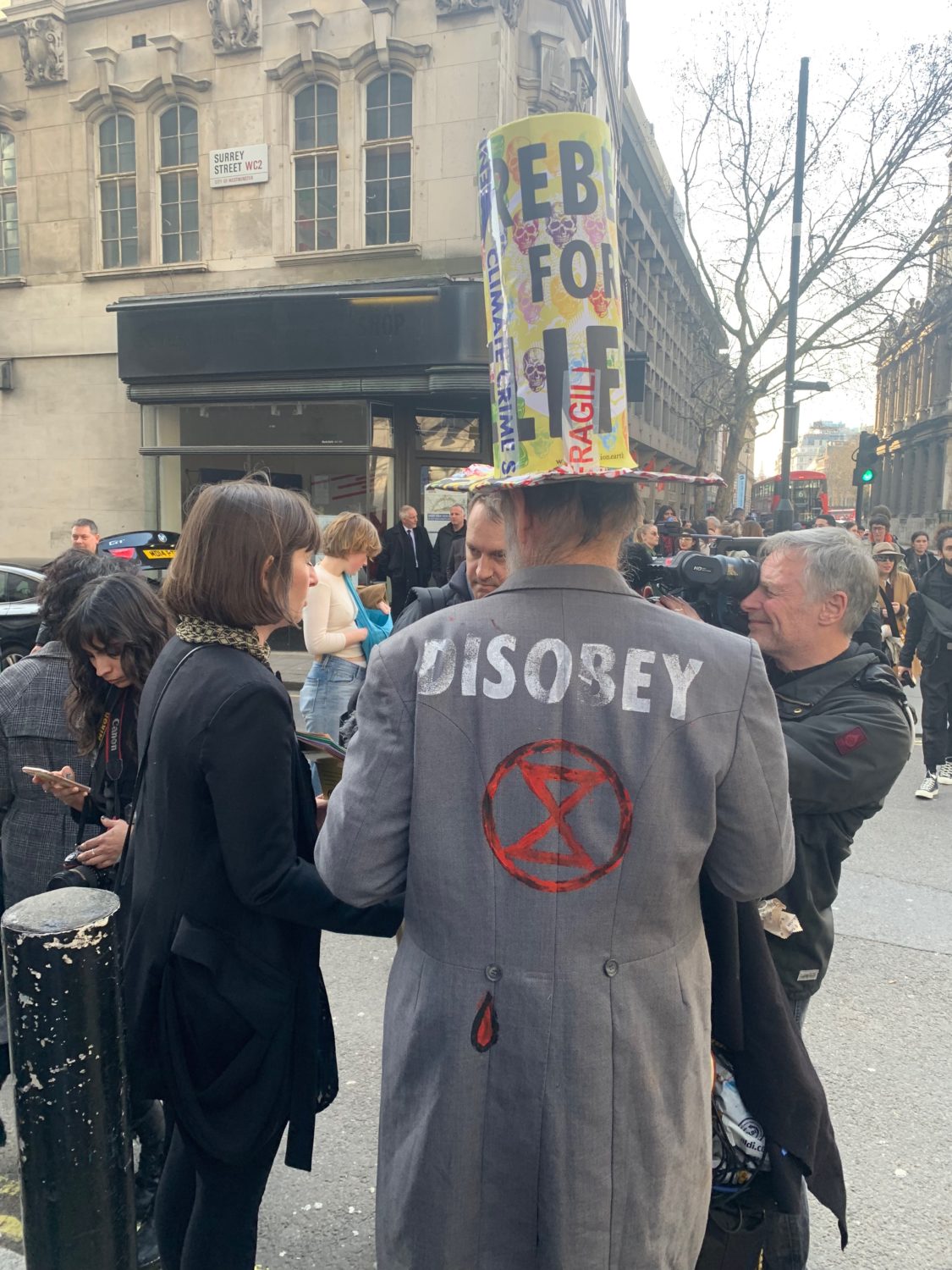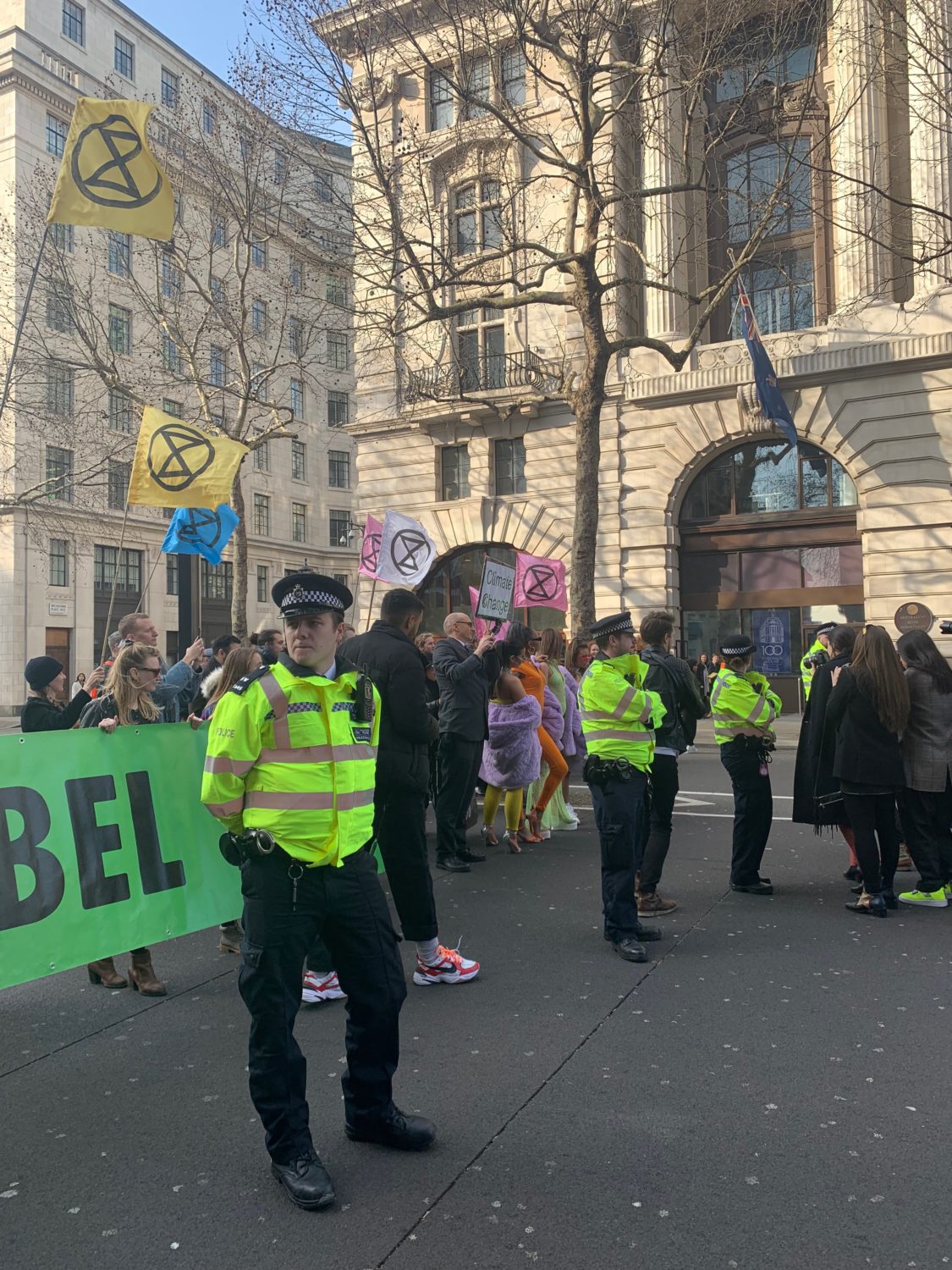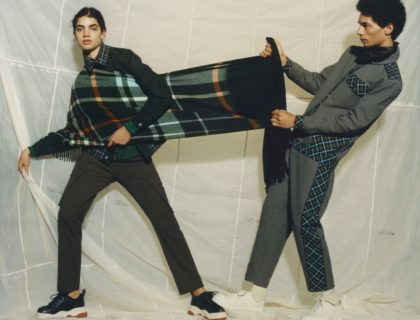Why are more people protesting against Fashion Week than ever before?
Case Study: London Fashion Week Feb’2019
Climate protesters have been in attendance at various fashion events for a while now, but the recent fashion week saw some of the most disruptive protests.
As I walk up to the huge red wall of 180 Strand, I see a lot of photographers, security and some guests already making their way out of the Burberry catwalk show. The façade, made of red vinyl, stretched around the entire building, hiding the activities inside from by-passers. Every two minutes someone stylish would emerge from the little black hole and walk among the fences past a swarm of photographers and reporters.
Photos of LFW headquarters at 180 Strand moments before the end of the Burberry show on Sunday 17th of February
Of course, everyone relevant enough to have received an invitation to the Burberry show automatically becomes a figure of interest for the press. Yet, all these people dressed in head to toe designer items of the latest fashion aren’t what grabs your attention. Barely any photographers or reporters seem to notice the growing mob of people standing in front of the LFW headquarters holding stretched posters that read – Extinction Rebellion, Rebel for Life, and Climate Change = Mass Murder.
Photograph: Isabel Infantes
Activists block the road outside Victoria Beckham’s London fashion week show at Tate Britain.
The gathering appeared to be an organized peaceful protest about the huge environmental imprint of the fashion industry. I approached two protesters to learn more about their cause. Ether and Tom were both long-time members of the Extinction Rebellion organization and agreed to give me a short interview.
Ether: We are here today to protest against the fashion and textile industry, and to basically ask it to make changes. To stop mass-pollution and poisoning fresh water; the worst of fast fashion.
Myself: This year a lot of documentaries came out on the topic of fast fashion. Do you think that those could potentially change the attitudes of people? Especially the younger generation who are the main consumers of fast fashion?
Ether: I think there are small changes which are very positive, but sadly, there’s still not enough being done. Obviously there are some fashion designers that operate in an eco-friendly sustainable way. But it’s not just about those few designers. What we really need is everyone coming to a consensus, that we need to change the way we shop and most importantly the way we produce. The thing that I find the most crazy is that people in the industry know how to make clothes in a way that is sustainable. Through recycling programs, donations, and cleaner production ingredients, sustainable fashion can be achieved. We need to treat the environment with respect. Sadly, the knowledge is there and is just not being used.
Tom: Unfortunately, the negative impact on our environment is so great, just for economic profit. And this profit goes to a very small number of people – fashion industry insiders. So from that kind of perspective – for so little output, so much damage is being done. And the question is – for what? Just a big waste.
As I interviewed Ether and Tom, I noticed that more people were pulling up to the street and they began to fully block the roadway. This reflected the overall atmosphere of the gathering – a lot of tension. Nevertheless, the Sunday afternoon of civil disobedience passed peacefully with no arrests, as organizers stayed in constant contact with police on the ground and allowed emergency vehicles to pass when required. Some fashionistas dismissed the protesters’ concerns, while others stopped to pick up a quick Instagram story.
Yet, do the people trotting down Strand in a 1,200£ Burberry trench and a pair of 700£ ‘sold out’ Maison Margiela boots really care about the effect of fashion on our planet? They would probably argue that they buy high quality pieces and feign animal cruelty is an issue of the past. However, it has become common among fashionistas to endorse fast fashion brands through promo codes, sponsored posts or collaborations.
It comes as no surprise that big chains like Topshop, Zara and H&M use high-end brand designs as inspiration for their collections, thus providing affordable versions of our favorite designer pieces. Over the last five years, the rise of online shopping has added an enormous contribution to the level of pollution. Online sales are rapidly accelerating, while the quality of the products sold online is deteriorating. To put it simply, more people are choosing to buy cheap “trendy” clothes online than to go to an actual shop to pick out a well-manufactured garment. The advantages of the online method are obvious – “opening hours” for shopping are 24/7, easy price comparison, online sales, free shipping, and a worldwide selection. Yet the negative impacts of this industry managed to bring hundreds of people onto the streets of London. Ether informed me that they were going to come out to protest throughout the duration of London Fashion Week. This way there is not a moment that people can forget about the other side of fashion – pollution.
The reason NGOs like “Extinction Rebellion” exist is because people do not believe that the government is able to make “the bold, swift and long-term changes” necessary to save the planet from an environmental catastrophe. A lot of the people who take to the streets feel like the fast fashion situation is spiraling out of control. A recent study by the Ellen McArthur Foundation found that one garbage truck of textiles is dumped every second. And the Copenhagen Fashion Summit reported that fashion is responsible for 92 million tons of solid waste dumped in landfills each year.
What these astronomical numbers mean is that we as a society have to reconsider our fast-fashion habit. We simply can’t continue to make clothes that do not consider our environment, if we want to have a future on this planet.
Many fashion brands, including Burberry, Nike, H&M and Gap have recently signed up to the Make Fashion Circular initiative. It aims to improve the industry’s record on sustainability and reduce global waste from fashion by recycling raw materials and products.
That is really just one small step towards an environmentally conscious fashion industry. Unless more brands and producers change their ways, either through initiatives or government regulation, future generations will have to struggle on a planet overflowing with our impulsive buys.
Bibliography
https://rebellion.earth/who-we-are/
https://www.theguardian.com/fashion/2019/feb/17/climate-protesters-take-action-to-disru pt-london-fashion-week
https://www.greenpeace.org/international/story/7575/copenhagen-fashion-summit-how-n ot-to-make-the-fashion-industry-more-sustainable/
https://www.ellenmacarthurfoundation.org/our-work/activities/make-fashion-circular
https://www.ellenmacarthurfoundation.org/news/one-garbage-truck-of-textiles-wasted-every-sec ond-report-creates-vision-for-change
https://rebellion.earth/demands/ https://www.sdcexec.com/warehousing/blog/20989207/the-rise-of-online-shopping-explained https://www.businessinsider.de/zara-forever-21-fast-fashion-full-of-copycats-2018-3?r=US&IR=TFa
